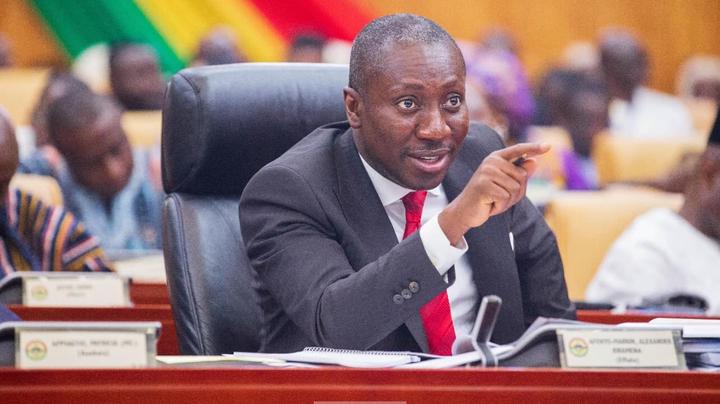Alexander Afenyo-Markin has raised concerns about what he claims was a significant error in President John Dramani Mahama’s oath-taking ceremony. According to Afenyo-Markin, the President’s full name, “John Dramani Mahama,” was omitted or misrepresented by the secretary during the process.
Speaking to the press, Afenyo-Markin emphasized the importance of accuracy during a solemn and constitutional process such as an oath-taking ceremony. “When the President took the oath, he stated his name as John Dramani Mahama. He is not John Mahama. So, the secretary got the President’s name wrong,” he pointed out.
The Significance of Accuracy in Official Procedures
Afenyo-Markin’s concerns reflect the importance of adhering to constitutional protocols. He argued that such moments symbolize the sanctity of the presidency and should leave no room for errors, no matter how small they may seem.
Experts in constitutional law agree that names used during official procedures must reflect the true legal identity of individuals, particularly for leaders of a country. This ensures clarity in official records and avoids potential disputes or misunderstandings in the future.
Watch the video here
Public Reactions
The statement has sparked mixed reactions among political observers and citizens. While some have dismissed the issue as a minor oversight, others agree with Afenyo-Markin that such an error should not be taken lightly. “Attention to detail during official ceremonies reflects the competence of our institutions,” said a political analyst.
Afenyo-Markin’s Call for Accountability
Afenyo-Markin has called for greater diligence in future state events, urging officials responsible for such processes to double-check every detail. “We cannot afford to trivialize the importance of these ceremonies. The presidency is the highest office in the land, and everything about it must be handled with the utmost precision,” he added.
While this alleged error may not have direct legal consequences, it raises important questions about procedural thoroughness in state affairs. Ensuring that such protocols are error-free strengthens public confidence in governance and the integrity of national institutions.
As discussions around Afenyo-Markin’s comments continue, the spotlight remains on how the administration will respond to his observations and whether such mistakes will be prevented in future ceremonies.
